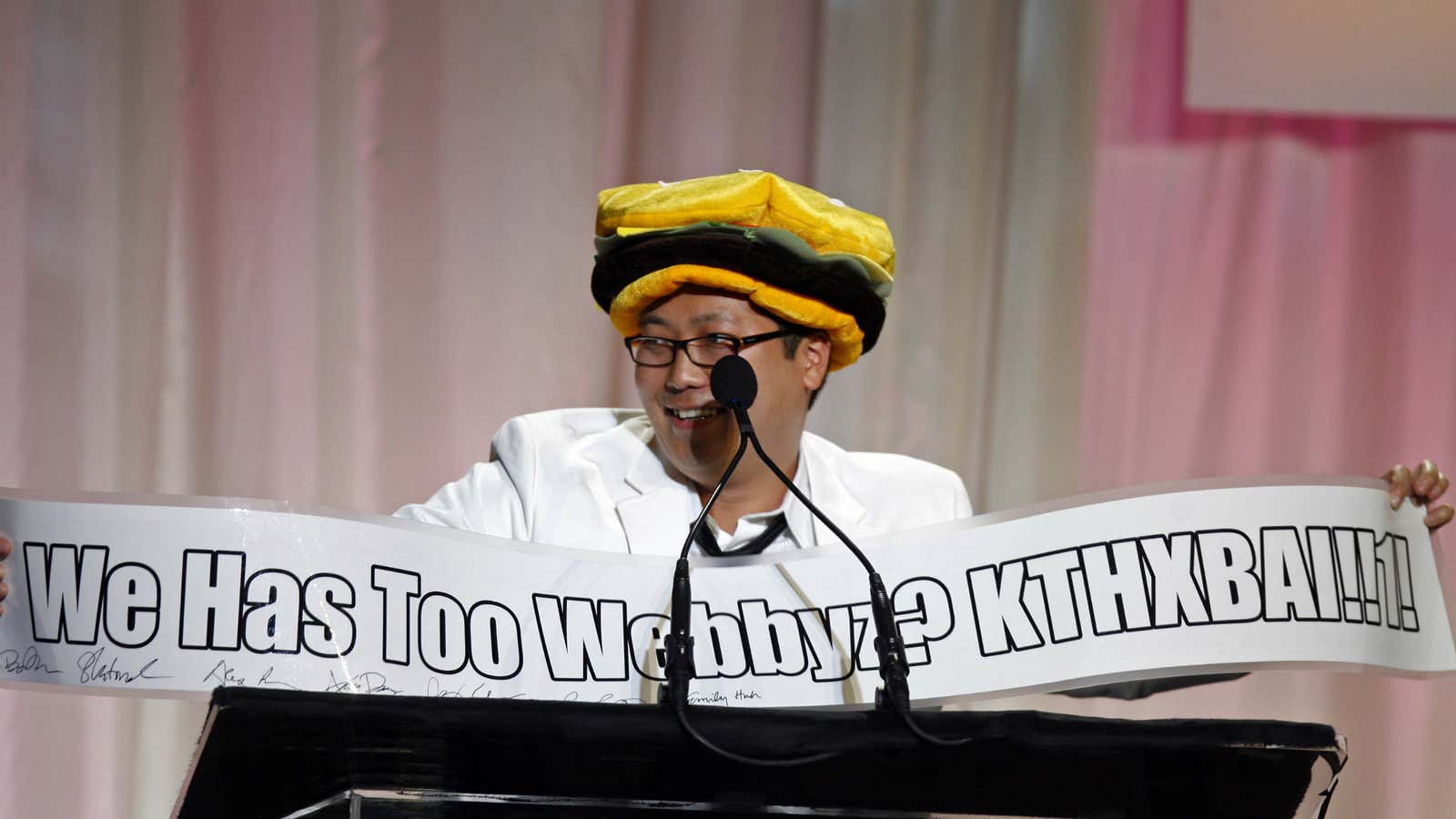I closed the doors on my first startup 12 years ago, throughly broke, depressed, and feeling the burden of losing hundreds of thousands of dollars of other people’s money. I’ve written about my own struggle with suicide, a failed entrepreneur unsure how to face the world. I’ve never met Aaron Swartz, the co-founder of Reddit who took his own life last week, but he has made me cry and ache in recent days more than I care to admit.
He believed with all his brilliance that the public had the right to an open and unfettered Internet, and that the locking up of the public domain—something that is rightfully, and legally ours—had to be stopped. He co-founded Demand Progress, an advocacy organization that was instrumental in fighting the Stop Online Piracy Act (SOPA), something I am personally grateful for.
Aaron and I shared a common passion: to keep the internet free and open, so that knowledge and creativity could be shared freely and so that the public could build upon it. Cheezburger, my media company that aspires to make people happy for five minutes a day through humor and memes, could not exist if companies and governments keep restricting the rights of the people to create new expressions from old. In the age of the internet, this freedom is constantly under threat with ever more punitive, criminalized copyright laws and circumvention of the public domain under cyber security threats.
Aaron spent his short time on Earth fighting these threats.
Leading up to his death, Aaron faced up to 50 years in prison because he was accused of unauthorized access to millions of academic articles from JSTOR (short for the digital library, Journal Storage)—many of which were already in the public domain. It was a violation that one friend equated to “trying to put someone in jail for allegedly checking too many books out of the library.” JSTOR decided not to pursue charges, but the government charged him with multiple counts of wire fraud and computer fraud among others crimes.
As horrifying it is to be sent to prison for downloading academic papers, it’s particularly relevant because incarceration is a leading contributor to suicide. And if you think suicides are a fluke, you’re wrong: it’s the seventh leading killer of American men.
With the ability to prosecute and wield the power of the government comes the burden of discretion, something that was painfully lacking here. Instead, the prosecutor in Aaron’s case acted with the zeal of boiler room stockbroker who met a sucker they can use to rack up a victory for personal gain—using the public’s dollars to justify the creation of a victim in a victimless incident.
The abuse of prosecutorial powers is as breathtaking as Aaron’s death is needless, and I’m torn about who should share the blame for his suicide. Ultimately, Aaron is responsible for taking his own life, and depression is a disease we as entrepreneurs sadly avoid in the open. But reading through the details of the alleged “crime” it’s hard to see anything but an abuse of power and the action of a bully.
I walked away from thoughts of suicide 12 years ago, but back then as a 23-year-old, I remember the comfort of knowing that there was a way to stop the suffering. As mature and reasonable as I seemed, I was powerless in depression against a world that felt devoid of hope. When I put myself in Aaron’s shoes—losing all my money, having the power of the government bearing down on me, and facing the possibility of prison—I see how the solitude of death and the finality of its silence might have been irresistible.
When those entrusted with power act with reckless disregard for justice against one of its citizens, bleeding the reserves and the hopes of a brilliant young man, who should be held responsible?
Regardless of the answer, the world is a little less bright today. We’re left only with the legacy of Aaron, and not the man himself who did great things, and who could have helped create a great deal more to make a better world of all of us. We owe it to him to keep up the fight.
